Do tightened gun laws lead to greater security?
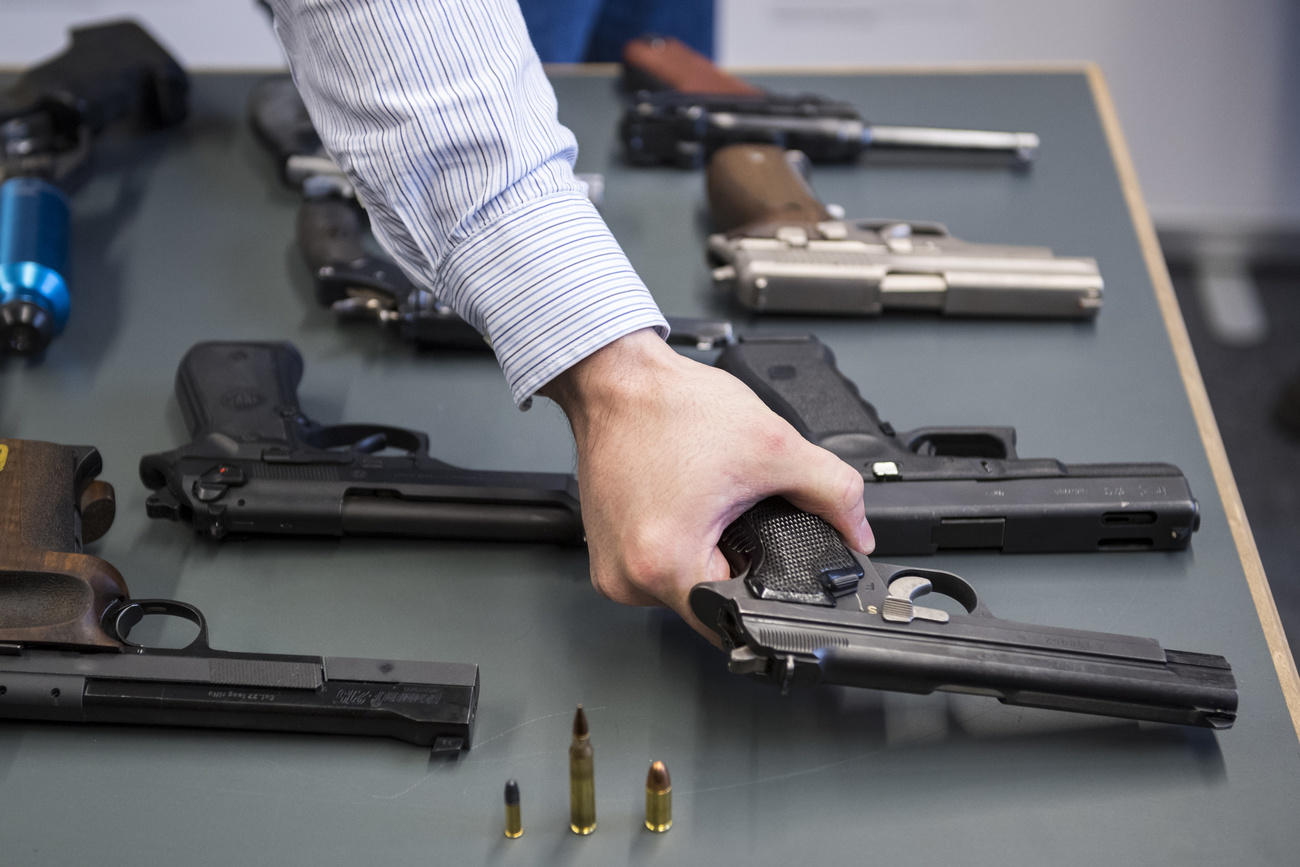
The Swiss government has a clear message for voters: Approve the new gun law reform and citizens will be protected from the misuse of dangerous weapons. The electorate will decide on May 19 whether to adopt changes made to European Union firearms regulations in the wake of terror attacks in some member states.
The proposed legislation would ban high-capacity semi-automatic weapons (with certain exceptions), improve tracking of weapons, and provide for improved information exchange between Schengen countries, plus other measures to fight the trade in illicit firearms. (Switzerland, while not a member of the EU, is part of the Schengen agreement governing the free movement of people across a large portion of Europe). The government says that these changes close loopholes in the current lawExternal link and adopting them is a matter of protecting the public.

More
Fact checks by SWI swissinfo.ch: How we work
Those who oppose the gun law changes have dismissed the government’s security argument and insist that tightening the existing legislation would be useless in fighting terrorism and crimeExternal link.
The opponents may not be entirely wrong. Although research suggests that gun control legislation is generally associated with lower rates of gun crime, the impact of a further tightening of the law is less clear when strong controls are already in place – as is the case in Switzerland.
A correlation exists
At close to 28 guns per 100 inhabitants, Switzerland has one of the highest rates of gun ownership among Western countries. Its rate of gun deathsExternal link is also relatively high (2.84 per 100,000 people). Yet homicide accounts for just a small proportion of these fatalities (0.17 per 100,000) and mass shootings are rare, with just two in the past 20 years.
By contrast, the country with the highest gun ownership rate in the world, the United States, experiences 4.5 gun homicides per 100,000 people, along with numerous mass shootings each year.
Given the high incidence of gun crime in the US, researchers have tried to determine if gun legislation, which is famously weak at the federal level, could reduce gun violence. A study published in 2018 looking at individual US states, which regulate the buying and selling of firearms, found that stricter gun laws were associated with lower rates of firearm homicide. But since few states actually have strong gun controls in place, the authors of the observational study could not establish a cause and effect.
An analysis in 2011External link by Richard Florida, an economist, came to a similar conclusion. Although he acknowledged the small sample size, he noted that correlations appeared substantial, with “significantly fewer gun deaths” in states that had introduced bans on assault weapons and safe storage and trigger locks requirements.
A much larger systematic reviewExternal link that looked at 130 studies in ten countries also concluded that laws restricting firearms are in certain cases associated with reductions in gun deaths.
This correlation may well apply in Switzerland. Here, unlike the US, strong federal legislation regulating guns are already in place. The country bans fully automatic weapons, along with semi-automatic weapons that were once fully automatic, and places permit requirements on obtaining a handgun and to carry and conceal a gun in public. Gun owners must store ammunition and guns separately and securely. And the country’s 26 cantons keep weapons registries. When the gun law was introduced in 1999, there were close to 400 gun deaths in the countryExternal link, including 46 homicides; by 2016 the number of fatalities had fallen to 229 (17 of which were homicides).
Around the world
The correlation between strong gun legislation and lower rates of gun murders can also be seen elsewhere. For example, in Japan, handguns are banned and citizens must pass rigorous background checks and a shooting range test to own a shotgun or rifle. Experts who spoke to the BBC External linksaid that although other factors like culture may be at play – the Japanese ideal of post-war pacifism makes guns taboo – rigorous gun laws can at least partly be credited for the country’s low rates of gun ownership and shootings. The effects of strict gun controls can also be seen in Iceland, where per capita gun ownership is high External linkbut no gun homicide has taken place since 2007.
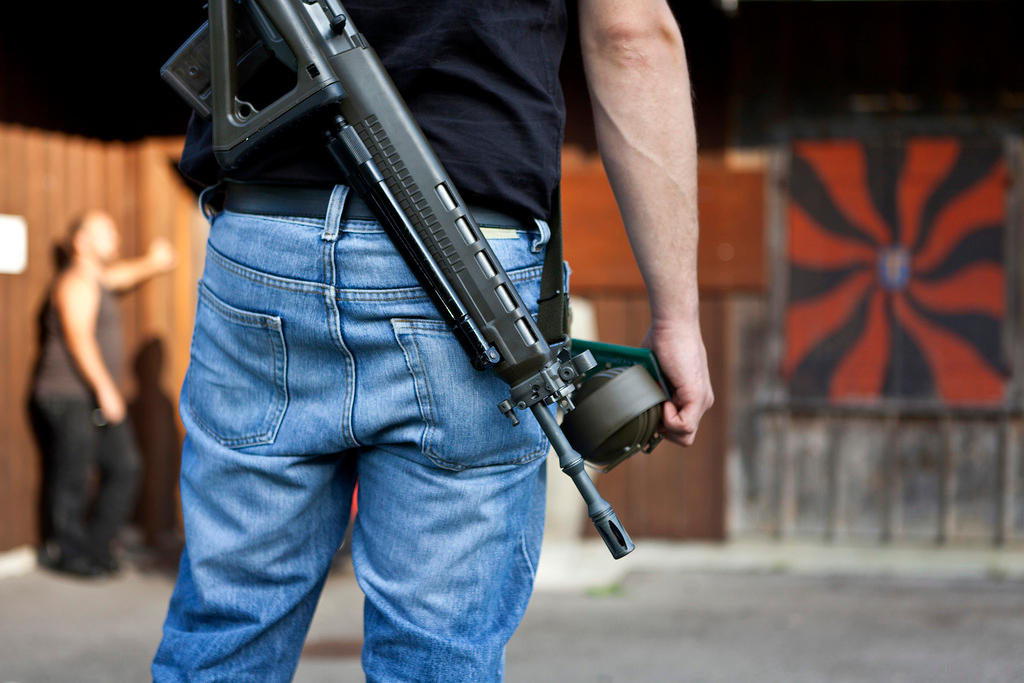
More
Swiss gun tradition in the crossfire
The case of Australia may be even more relevant to Switzerland. Research on the aftermath of a new gun lawExternal link that banned semi-automatic weapons following a mass shooting in 1996 suggests that gun homicide has declined significantly since then. But this downward trend had already started in the 1980s, so the 1996 legislation had no statistically observable additional impact on gun deaths. One possible explanationExternal link, according to Michael Siegel, a professor of community health sciences at Boston University, is that most Australian states already had relatively strict firearms controls in place, such as license and permit systems and background checks.
So although evidence from observational studies points to a correlation between strong gun controls and low rates of gun homicide, further changes to stringent existing laws may have little further discernible effect on people’s safety.
Banning semi-automatic weapons, as the Swiss government proposal calls for, “would not be expected to have a major impact on firearm homicides or suicides because these weapons are not responsible for most firearm deaths and because any firearm […] is potentially lethal,” Siegel argued.
A question of who, not what
The proposed gun reform also calls for increased information exchange with EU countries, for example, on people who have been refused a permit to purchase a weapon. This type of cooperation may prove vital if, as Siegel argued, controlling who has access to guns is more likely to have an impact on gun deaths than bans on certain types of weapons.
One study foundExternal link that the law in the US state of Connecticut requiring gun buyers to first obtain a permit following a background check was associated with a 40% drop in gun murders.
But not all studies looking into this question are as conclusiveExternal link, and experts say more research is needed on the effectiveness of restrictions on who can own a weapon.
The Swiss government has a slightly different take on why cooperation with the EU was important, arguing that continued membership in the Schengen/Dublin systems depended on whether voters approve adopting the proposed gun reformExternal link.
It argued that the Schengen area framework and the Dublin agreement, a cornerstone of asylum policy in Europe that Switzerland has used more than any other member country, have helped to keep the Alpine country safe. Some backers of the gun reform go so far as to argue that not staying in step with other Schengen countries riskedExternal link turning Switzerland into a haven for criminals.
Verdict: Unproven
Whether the tightening of Swiss gun laws as proposed by the government will lead to even greater public safety is unclear. Studies show that there is a correlation between gun control legislation and low rates of gun-related deaths, including homicide.
But a further tightening of already strong existing controls, such as banning certain types of semi-automatic weapons, may not have much obvious impact on the level of gun violence. Controlling who has access to dangerous weapons may also lower the incidence of gun homicide, but more research in this area is needed.

In compliance with the JTI standards
More: SWI swissinfo.ch certified by the Journalism Trust Initiative

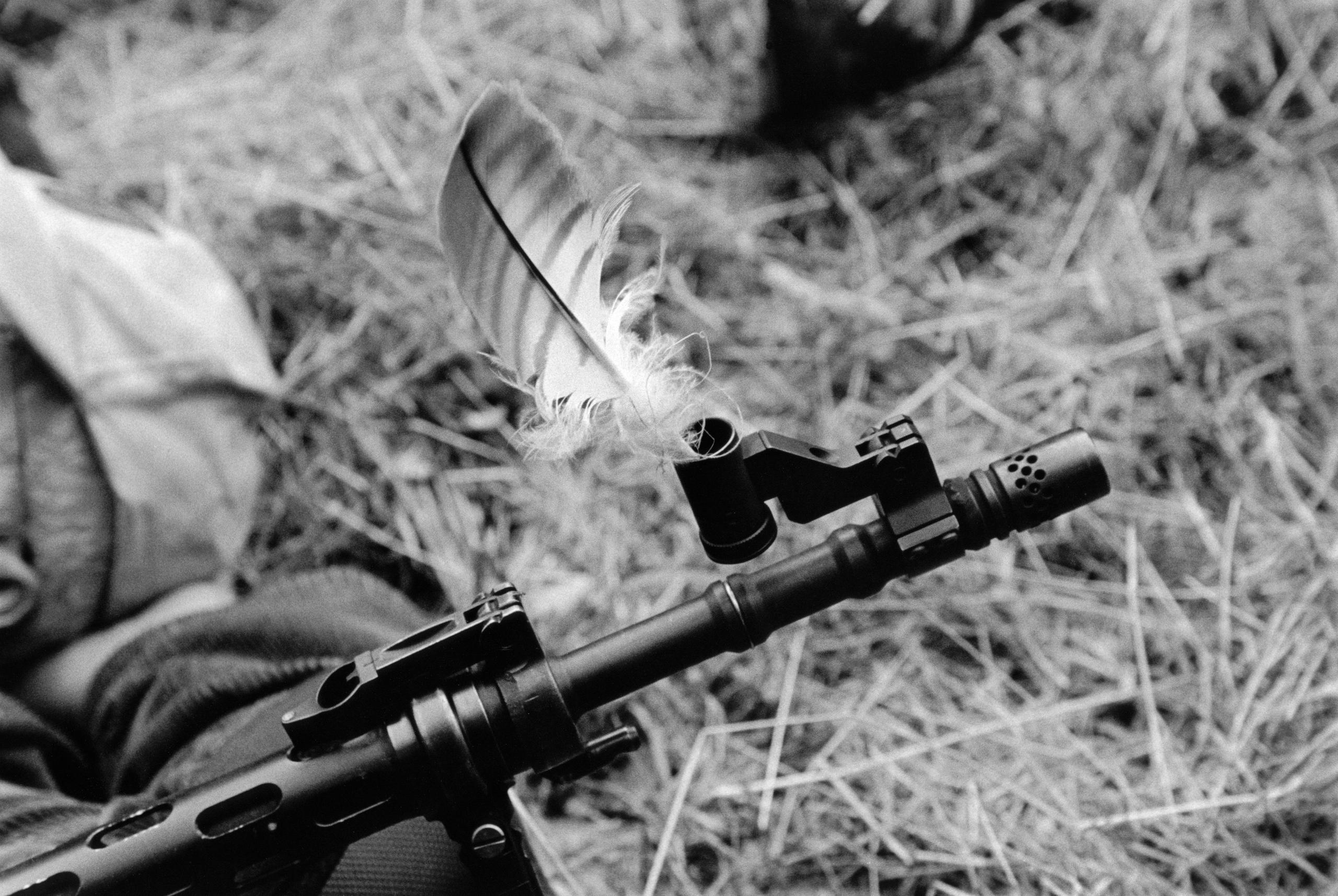
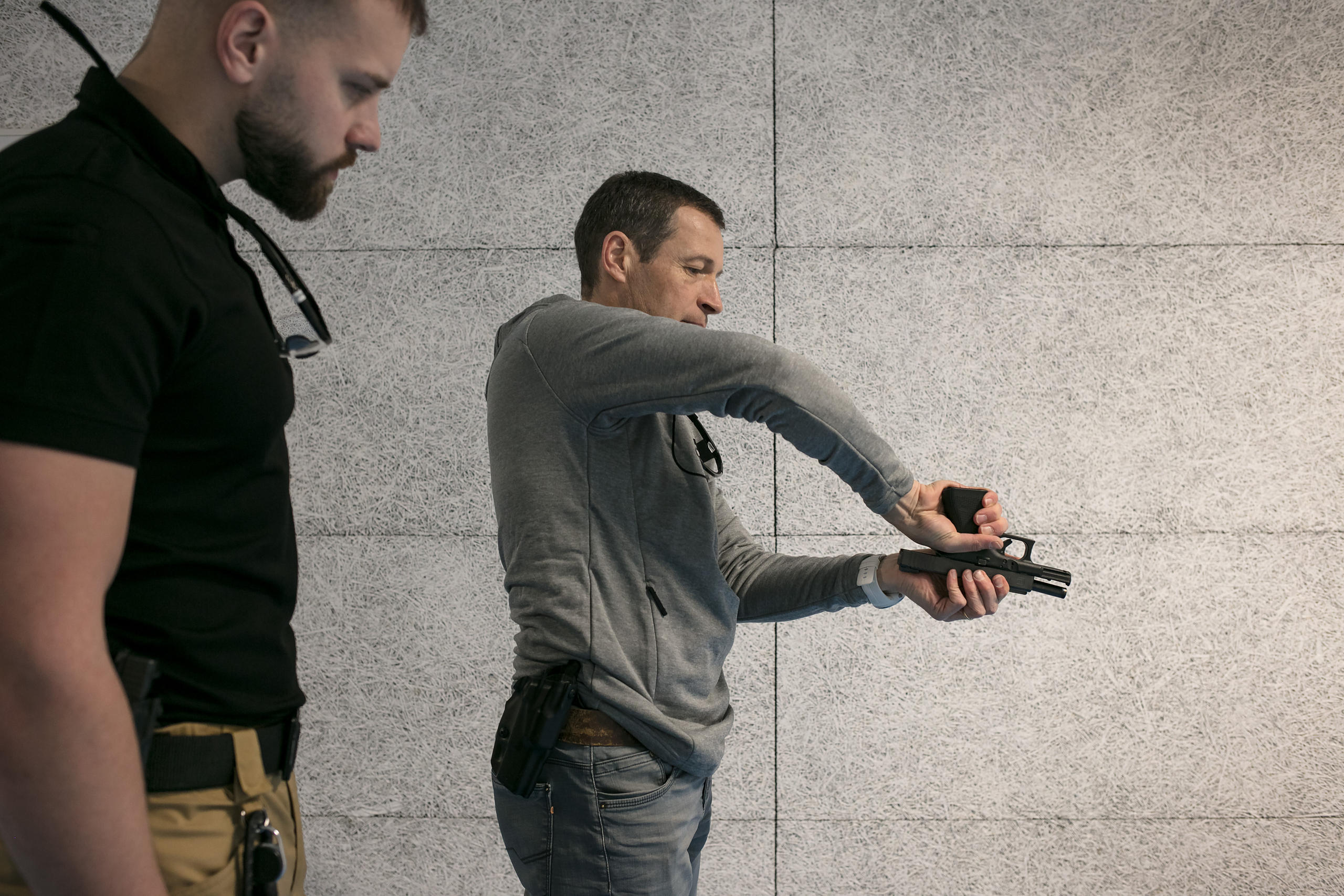
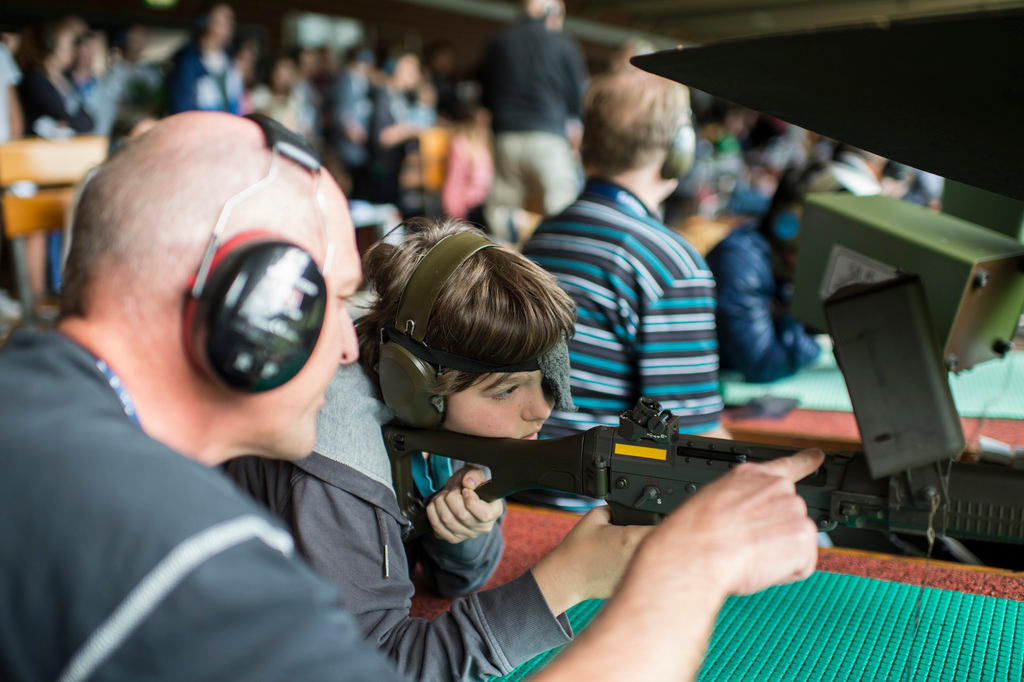
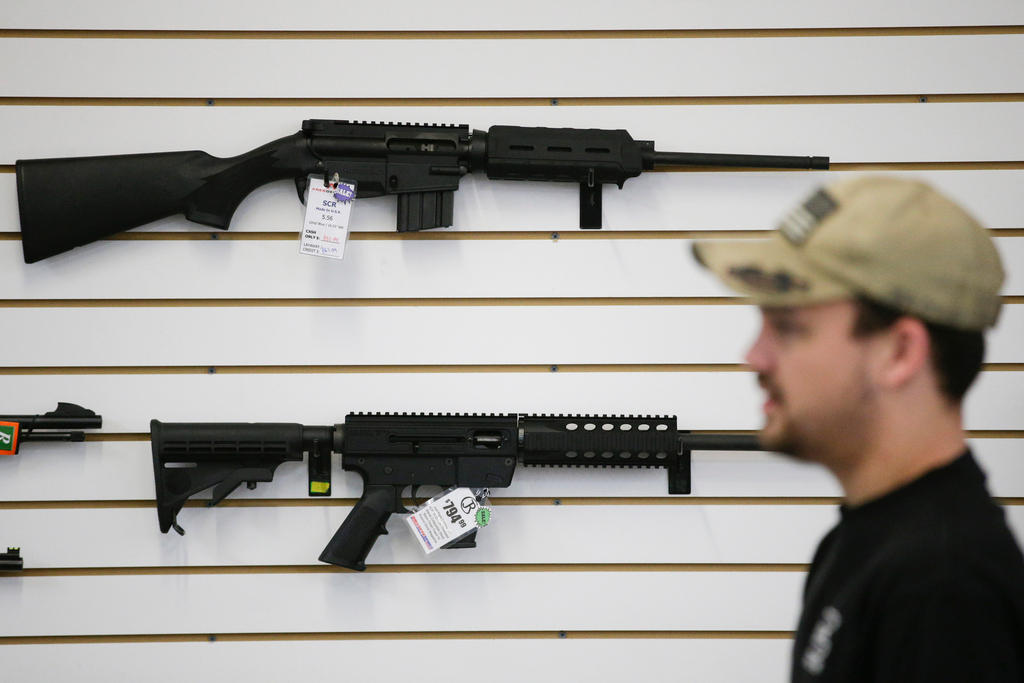
You can find an overview of ongoing debates with our journalists here. Please join us!
If you want to start a conversation about a topic raised in this article or want to report factual errors, email us at english@swissinfo.ch.